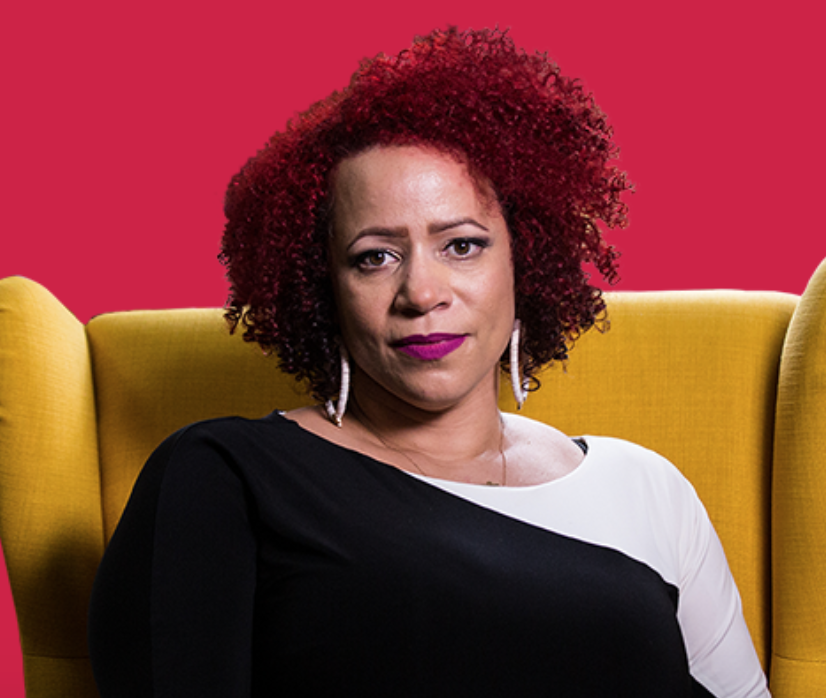
After twice declining to hold a tenure vote for journalist Nikole Hannah-Jones, and then ignoring the separate June 4 deadline Hannah-Jones set for a vote, the Board of Trustees for the University of North Carolina at Chapel Hill today approved her tenure during a special meeting. The vote was public after the board met in private for three hours.
Some protesters who attended the meeting in support of Hannah-Jones initially declined to leave the meeting for the closed session, citing ongoing concerns about transparency in the Hannah-Jones case and other board decisions. They were pushed out by security. Lamar Richards, student body president, helped calm the crowd by explaining the reason for the closed session. He also expressed frustration that more senior members of the board hadn’t explained this ahead of time, given the immense public interest in Hannah-Jones’s bid. In any case, he said, the goal was for Hannah-Jones’s tenure case to be treated like anyone else’s.
It was a petition by Richards, the board’s sole student trustee, that helped force the tenure vote for Hannah-Jones prior to the end of the board’s annual session today. Five other trustees sent similar petitions after him.
Prior to Wednesday’s meeting, what little the board had said about Hannah-Jones’s case has been contradictory. Richard Stevens, the outgoing board chair, has suggested that the board had questions about Hannah-Jones’s qualifications because she is not a traditional academic. That doesn’t align with how the board has treated tenure cases for other journalism professors, however, as theirs is a field in which expertise is gleaned through professional experience, not necessarily terminal degrees. Stevens has also said that Carolina’s provost didn’t formally present the case to the board for consideration. Yet tenure files that the provost doesn’t support don’t move on to the board in the first place.
The real explanation, confirmed by trustees who have spoken out anonymously, is that board has been under political and donor pressure not to tenure Hannah-Jones, co-creator of The New York Times Magazine’s “1619 Project.” Hannah-Jones’s stated goal for the project is to recenter the contributions of Black Americans in U.S. history, dating to back to 1619. She’s been credited with pushing readers -- including historians -- to challenge their assumptions about the past. Yet some critics say “1619” is unpatriotic and too focused on racism. Many faculty members, students and alumni, meanwhile, have repeatedly urged the board to approve Hannah-Jones’s tenure, citing her Pulitzer Prize, her MacArthur “genius” grant and other accolades and qualifications. Hannah-Jones is also a graduate of Carolina’s Hussman School of Journalism and Media and a member of its Hall of Fame.
It’s unclear whether Hannah-Jones will still come to Carolina, given the controversy. On the one hand, the board has treated her tenure case differently than virtually every other case it’s considered; typically it rubber-stamps faculty- and provost-backed tenure cases such as Hannah-Jones’s. Through her attorneys, Hannah-Jones has alleged that the board violated her First Amendment rights and discriminated against her as a Black woman in denying her a vote for so long. Ten of the current board’s 13 members are white men. On the other hand, campus groups and even outside academics have vigorously defended her. Hannah-Jones has only confirmed that she won’t be coming to North Carolina Thursday or on a term contract, as previously planned.
On Wednesday morning, Hannah-Jones tweeted, “Let the chips fall where they may.” She spent the hours ahead of the meeting in Chicago, at the unveiling of a monument to Ida B. Wells, whom she’s said inspires her own career. “Such a great day as we unveiled the Ida B Wells monument in Chicago. This Black woman journalist told the truth no matter how much power lined up against her, so, it is cosmically fitting that this happened on THIS day,” Hannah-Jones tweeted from the unveiling. She also expressed concern over Twitter for the protesters who were shoved out of the meeting.
Read more tomorrow at Inside Higher Ed. In the meantime, here’s some more background on the case.
from Inside Higher Ed https://ift.tt/3hDbqYz
Comments
Post a Comment